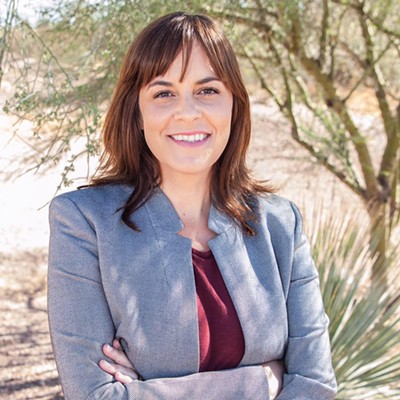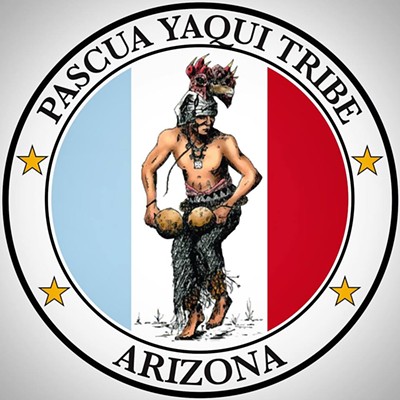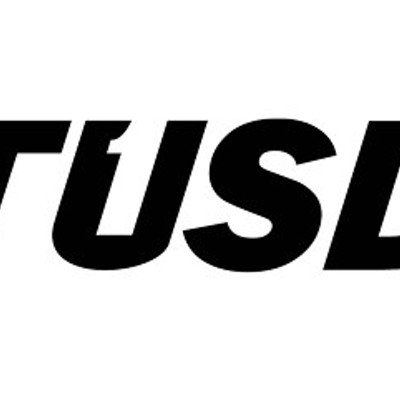The June 2000 election saw a record 56 tribal members run for 11 tribal council seats. This year, that number is 78.
While the tribe only has some 14,000 registered members, the 11-member council makes decisions that impact all of Southern Arizona, especially concerning the economic impact on the area of their two successful casinos--Casino of the Sun and Casino Del Sol.
"This last council was the most visible socially and politically than any other council before, so I think now everybody wants that type of power," says Tina Lentz, the former Casino Del Sol vice president of marketing.
The current council, voted in four years ago and headed by Chairman Robert Valencia, was directly responsible for the building of Casino Del Sol and the adjacent Anselmo Valencia Tori Amphitheater (AVA), which has become one of the premier entertainment venues in the area.
"It was Chairman Valencia's vision to become the entertainment leader," says Lentz.
There have been other accomplishments, but the last four years have also been politically tumultuous for the council and the tribe.
Since they were officially recognized by the federal government in 1978, the Yaquis have been no strangers to economic and political wrangling. Shortly after they got on the Indian gaming bandwagon and opened Casino of the Sun, a March 1994 incident exposed two non-Yaqui employees of the casino skimming $1.8 million--an amount nearly one-fifth the tribal annual budget at the time. The offenders were convicted in federal court.
As Casino of the Sun added millions to tribal coffers, the council was able to do more for the tribe's quality of life. The politics of how that money should be used became a major tribal issue. When the June 2000 election came, 10 of the 11 sitting council members were replaced. The battle lines were drawn immediately over previous council decisions dating back only a few months.
In a move to diversify their economy, the council had announced in March 2000 that they'd made a deal to fund a $3.5 million high-tech manufacturing plant on tribal land for Advanced Ceramics Research Inc. (ARC), a company with major government contracts. The following month, the tribe signed a 10-year contract for the project--two months before the June 2000 election. But within a month after the June election, the new council--under Valencia--killed the venture in favor of building a second casino, Casino Del Sol. The council also eliminated the tribal economic development office responsible for cutting the ACR deal. (That office was eventually re-instated.) Today, the ACR facility is located in the Tohono O'odham tribe's newly built industrial park.
That wasn't the only tribal-owned enterprise the council wanted to change. In the fall of 2000, the council announced it would shut down the 15-year-old Pascua Yaqui Adobe Company and funnel its budget into Casino Del Sol. Cooler heads prevailed by January 2001, and the Adobe Company remains.
Meanwhile, plans for Casino Del Sol proceeded, but that also sparked tribal infighting.
Then Vice Chairman Francisco Munoz went public with his concerns about the casino's $66 million construction contract. Munoz contended the contract was rushed, had no cost ceilings or deadlines and was not put up for bid as required. Other council members shared his concerns, as did a tribal lawyer who advised the council not to sign the contract.
But the contract was signed, and the project went forward. Munoz was voted out as vice chairman, though he remained on the council. (Members elect the tribal council, and when the council members are seated, they vote on the officer positions.)
"They had changed several of the leadership positions on the council and that was just one of them," says Debora Norris, community relations for the tribe.
After that shake-up, chairman Valencia survived an attempt to oust him in a failed recall attempt. Critics say the effort was thwarted by tribal Attorney General Robert Lyttle, who Valencia had helped hire.
Fast-forward to 2003. Munoz--by council resolution--became interim president of the Tribal Gaming Board while Lyttle had "moved on," as did other assorted staff members. But things had calmed down, and the council moved on to some impressive accomplishments.
But then, the election year arrived.
In late January, the council voted to let go of the three top executives responsible--literally from the ground up--for the creation of Casino Del Sol. The three were in a contract dispute with the tribe and had given their 120-day notice of termination, but the council responded by slamming the door on them two weeks later.
Hired together in September 2000, CEO/General Manager Doug Lentz; his wife, Vice President of Marketing Tina Lentz; and Chief Operating Officer Phil Pepple all came with a decade of gaming management backgrounds and worked together creating Cliff Castle Casino in Camp Verde and Treasure Bay in Biloxi, Miss.
"Everybody I knew in Indian gaming said, 'You're crazy to go work for (the Yaqui),' and we felt we had a contract, and so the contract protected us," says Tina Lentz. "Everyone told me, 'You have a good three years, and the fourth year, they're in election mode.' And it was to the letter."
Casino Del Sol is now the largest Indian casino of the 22 in the state, and the 4,600-seat AVA is bringing in acts that historically by-passed Tucson. But for the trio, there were no pats on the back.
"Instead, it started becoming one thing after another, making it incredibly challenging to operate the property," says Lentz.
One brick wall was when the council passed a resolution in late 2003 to conduct an audit of the operation after the tribe was disputing money that the trio felt they were owed. The audit came out clean.
"It's the politics of the election year. The bottom line is, they owe us money, and they still will not honor the contract. It's our belief that they are doing this in a way to get re-elected," says Lentz, "because legally speaking, it's very difficult to pursue any kind of action against a tribe."
The three now work for a San Diego tribal casino.
All these issues will come to a head June 7, when the council is once again up for election. According to Rosalinda Bravo-Garcia, head of the tribe's Board of Elections, about 20 of the 78 candidates have never run for tribal council before. Chairman Robert Valencia will be running again.
In March, Chairman Valencia received the Presidential Citation Award from the National President of the League of United Latin American Citizens. Valencia was given the award in recognition of his overall contributions to education in the community of Tucson.
A graduate of the University of Arizona, Valencia taught for more than 10 years at Pima Community College.
In February, the council approved a revamping of their college scholarship fund from $2,500 per semester to a four-tiered level of support ranging from $3,500 for freshman to $7,500 per semester for graduate students. The tribe brags of having some 400 Yaqui students in college today (the most in their history), including 145 at PCC and 30 at the UA.












